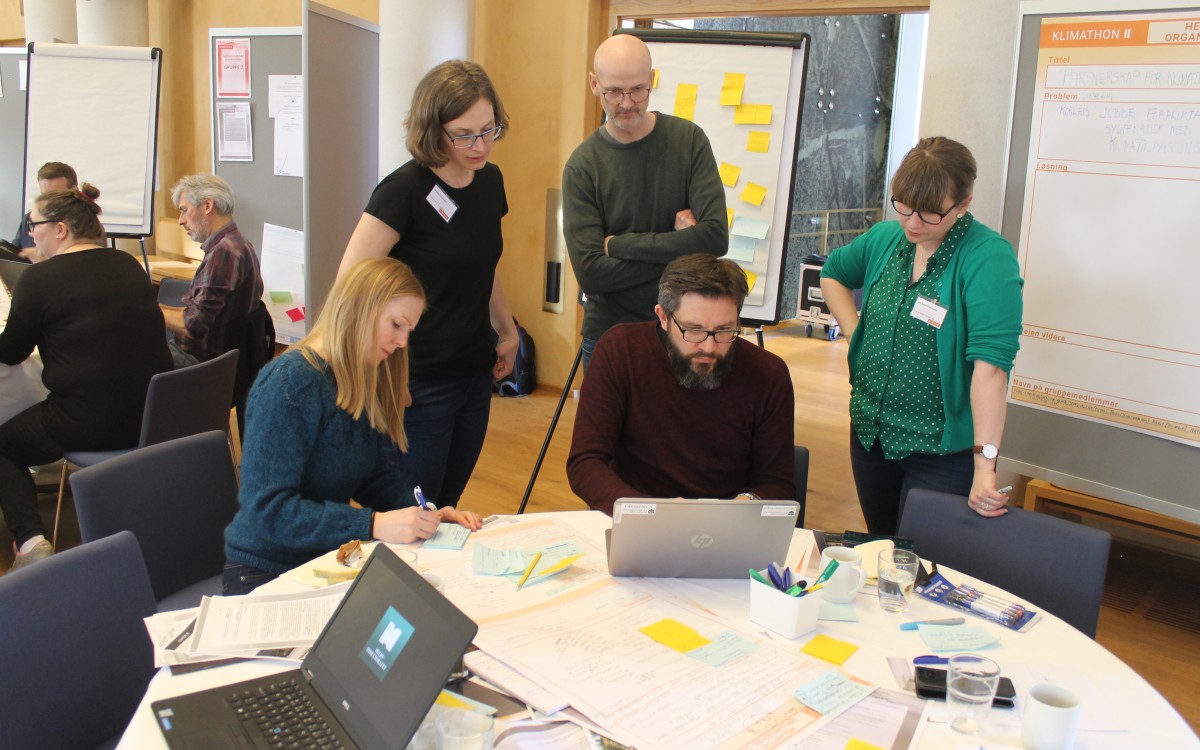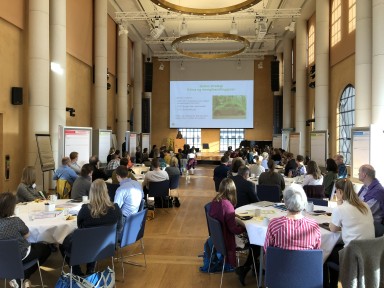Klimathon 2022 will focus on nature-based solutions

From 16.-17. of November, a set of research institutions in western Norway organise an inter-disciplinary climate change adaptation workshop of particular relevance to practitioners in municipalities. "In recent years, nature-based solutions have been gaining interest from the government and a growing number of municipalities are catching on as well," says Hanna Kvamsås, a researcher at Norce.
DATE:
19 Sep 2022
For a few years, research institutions in Bergen have organised Klimathon a hackathon-inspired event where participants from a variety of disciplines are placed in working groups to discuss solutions to a pre-set question or issue.
Moved from Bergen to Voss
To further develop the Klimathon-method, the organisers are trying a new approach by moving Klimathon out of the city of Bergen to a smaller municipality with other approaches to climate change adaption. Voss Municipality is also a part of the committee that organises this year’s Klimathon.

With the help of funding from Noradapt and other sources, participation is free, excluding travel and accommodation expenses.
“The organisers of -Klimathon are keen to test a form of collaboration where we work more closely with individual municipalities, such as Voss Municipality, which is currently in the process of further developing their efforts in the realm of climate and planning
“Whilst focussing on an individual municipality, we hope to attract participants from municipalities across Norway, as we have in previous years.
Highly relevant for municipalities
Although “nature-based solutions” has been a buzzword for years, the concept remains somewhat unclear to a lot of people. This is one of the reasons why Klimathon finds the topic fitting and important.
“A lot of municipalities are starting to work on this subject in the coming years, especially since the government’s planning guidelines now emphasise the importance of considering nature-based solutions in connection with climate adaption in land-use planning. In fact, municipalities now have to present a valid reason for not implementing nature-based solutions”, says Hanna Kvamsås from Norce, who is one of the organisers of Klimathon.
When novel terms like this enter the realm of policy -making, it i´s important for us as researchers to explore its limitations. We need to take part in discussions in order to obtain a better understanding of what governance and research reads into the concept as well as trying to capture how people work with nature-based solutions in practice
.
Inter-disciplinary groups
The organisers seek to make the discussion groups at Klimathon as diverse as possible, mixing people from different research backgrounds, municipalities, county administrations, and consulting agencies, to provide the groups with a wide variety of perspectives.
“People tend to stay within their own field of work. Here, we provide an opportunity to work in interdisciplinary groups with the same theme. This has been a popular feature of Klimathon according to feedback from previous participants,“ Kvamsås says.
A crucial factor in terms of cooperation is the amount of time people get to spend together in groups. At Klimathon, there is enough time for getting to know each other properly.

“People are often under the impression that everyone is familiar with each other´s points of view, but that is not always the case. In the past, we have seen that participants from both research and administration backgrounds appreciate the opportunity to sit down and work thoroughly together on a common task.
Hoping for application ideas
The organisers at various research institutions in Western Norway hope for an additional outcome of the discussions at Voss: new research questions that can be explored in future research projects, and projects centered on the implementation of nature-based solutions in Norwegian municipalities.
“We are keen to obtain new ideas from Klimathon that will later flourish and form the basis of future research projects.” , says Kvamsås.
Klimathon is a collaboration between Norce, Vestland fylkeskommune, Noradapt, Western Norway Research Institute (Vestlandsforskning), Bjerknessenteret, Centre for Climate and Energy Transformation (CET), University of Bergen and Norwegian Centre for Climate Services (NCCS).
